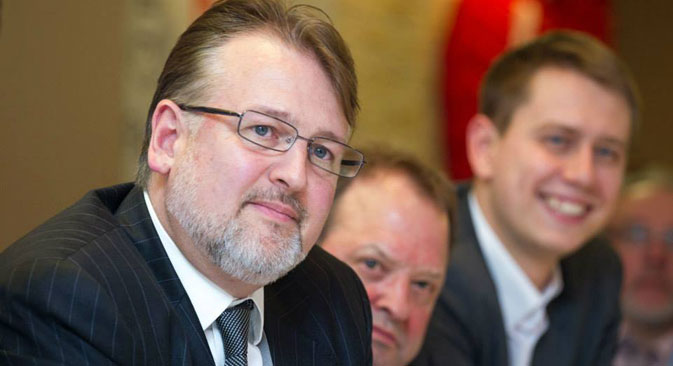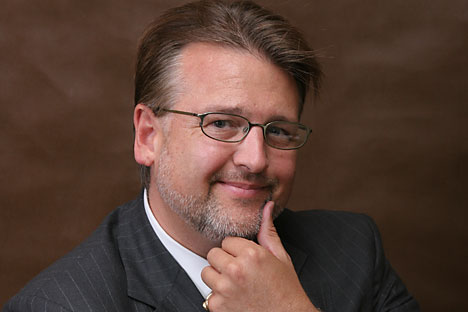'Russia needs to maximize the value of its intellectual property'

Kendrick White, founder and director of Marchmont Capital Partners.
Personal archiveKendrick White, director of Marchmont Capital Partners, an investment advisory firm, and associate professor at the Lobachevsky State University of Nizhny Novgorod, has worked in Russia for 22 years. He now helps Russian inventors find common ground with local and international businesses.
Russia Direct: There have been many attempts to create various alternative technology transfer centers in Russia. How do you assess the idea of creating such centers in Russian universities?
Kendrick White: Traditionally, such offices in Russia only assess scientific discoveries and deal with domestic Russian IP protection and patent filing. That’s mostly what they focused on until recently, with little research of international market opportunities and the commercial value of new technologies.
At Lobachevsky State University of Nizhni Novgorod we created a comprehensive Technology Commercialization Center (TCC), which included one of Russia’s first ever proof-of-concept centers. This is the best model that I learned from American universities because the proof-of-concept center tests the commercial viability of new discoveries.
We went to the University of Maryland in order to collect data on new technology trends in America, and globally. Unfortunately, such detailed research is not available in Russian universities because they do not have the funds to purchase market research reports.
Earlier this year, Intel Corporation became one of the founding members of our Industry Advisory Board. We work closely with companies such as LG and Samsung that are also interested in Russia, and particularly in Nizhny Novgorod. Russian universities should be ready to work with any legitimate production-generating business in order to help provide direction and assignments for scientists.
RD: Yet some Russian professors are reluctant to work with business and prefer to focus on either theoretical or fundamental science.
K.W.: Working with business doesn’t mean that all scientists must drop what they've been doing. But there will always be some percentage of graduate students and professors who want to make money from innovative products that might be commercially viable.
In the U.S., funding from the government is not increasing. And so universities have been developing independent relationships with businesses. Therefore, American university students and researchers don’t always want to work on research ordered by Washington D.C. --- they want to work on science projects funded by Google, or robotics projects funded by Uber or other major corporations.
RD: What does Russia need to do?
K.W.: Russia needs to create an innovation-driven economic model to diversify its overall economy. The Russian government should encourage universities to become more independent and make self-sufficient relationships with businesses, both locally and internationally.
Today, every student understands that cross-disciplinary scientific collaboration is the best way to create solutions and new products that people can use. If the government doesn’t encourage that [open collaboration between universities and partners], it is not going to happen by itself. And if it doesn’t happen, Russia will continue to be an oil-dependent economy. And that type of economy is inherently unstable and highly cyclical.
RD: Getting rid of oil dependence is a big challenge for Russia. What other challenges hamper Russia’s attempts to modernize its economy and innovate?
K.W.: The lack of transparency. Companies often send their technology brokers into universities, and identify a certain innovative technology and then buy it cheaply for cash. In this situation nobody wins because these companies actually don’t get the best technologies, the professors get a small amount of money, and the university is unlikely to get anything at all.
A university should first assess the commercial value of any new technology discovery, and then negotiate with potential buyers or investors to get the best valuation for the technology. To take a leading position in the global innovation economy Russia first needs to better understand how to maximize the value of its intellectual property, and that has been one of our primary goals at Lobachevsky State University.
Ger most interesting stories every Wednesday
All rights reserved by Rossiyskaya Gazeta.
Subscribe
to our newsletter!
Get the week's best stories straight to your inbox
